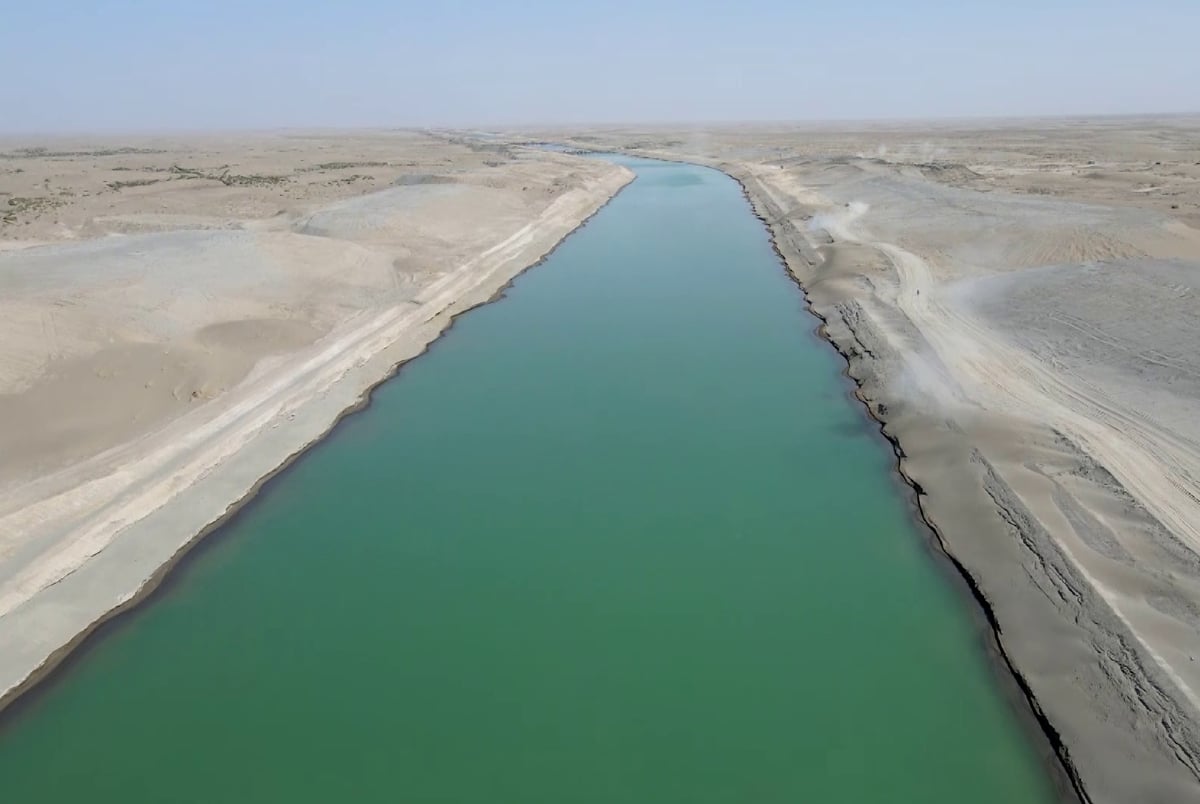This past week, a Turkmen environmental expert shared concerns over the Taliban’s massive canal project in Balkh province, a staff member of the holdout Afghan embassy in Dushanbe explained Afghanistan’s complex position in Tajikistan, and the Collective Security Treaty Organization discussed and assessed the security situation on the alliance’s southern border.

Amu Darya and Qosh Tepa Canal. Image source: The Kabul Times
Central Asian republics are extremely concerned by Afghanistan’s ongoing Qosh Tepa canal, which is being developed in Balkh province to divert water from Amu Darya (Tolo News). The canal is said to help irrigate agricultural land in the provinces of Balkh, Jowzjan and Faryab, and provide employment for a quarter of a million people (Izvestia). This week, a Turkmen expert on hydrology and Central Asia’s water systems spoke anonymously with the Turkmenistan branch of Radio Free Europe (Radio Azatlyk). Raising the alarm on the potentially disastrous effects of the canal on agriculture and water supply in Central Asia, he alleged that the completed project could drastically reduce the volume of the Amu Darya River, which flows northward from the highlands of northern Afghanistan and southern Tajikistan to the Aral sea, passing through Turkmenistan and Uzbekistan. According to a project based on accrued data from the latter two countries, the contraction of the river’s volume could reach as high as fifteen percent in some places. The Qosh Tepa Canal could represent a devastating blow to an already strained river system. In previous years, dialogue on water issues between Turkmenistan and Afghanistan worked through the joint Coordinating Commission on Water Management Issues. But since the seizure of power by the Taliban in 2021, no meeting has taken place. Moreover, Afghanistan is not a member of the Interstate Commission for Water Coordination of the Countries of Central Asia (ICWC), within the framework of which the countries of the region determine quotas for water withdrawal from the Amudarya and Syrdarya (Izvestia).
In the aftermath of last week’s Taliban official visit to the Afghan consulate in Khorog, Tajikistan, an employee of Afghanistan’s embassy in Dushanbe elaborated on the unusual circumstances of Afghan diplomacy toward its northern neighbor (Eurasianet). According to this insider, the consulate in Khorog, which is close to Badakhshan province, has cooperated with the Taliban government and its staff are receiving salaries from Kabul. But the embassy in Dushanbe has not recognized the Taliban as the legitimate government of Afghanistan. On the contrary, it still officially backs former Afghan vice-president Amrullah Saleh. It remains uncertain if the Taliban will be allowed to assume control of the Dushanbe embassy, but given the Tajik government’s attitude, this outcome is doubtful. Out of the five Central Asian republics, Tajikistan maintains the coldest position toward the Taliban government, refusing to recognize it or engage it in bilateral dialogue.
Parallel to its official unfriendly attitude toward the Taliban government, Tajikistan also cooperates with the Collective Security Treaty Organization (CSTO) on issues concerning border security and the threat of terrorism from Afghanistan. Last week one of the three deputy secretary generals of the CSTO, Takhir Khairuloev, visited the southern border of Tajikistan to assess the readiness and technical expertise of the border security forces (CSTO). Khairuloev has served in the armed forces of both the Russian Federation and Tajikistan. The focus on the Afghan-Tajik border is part of the CSTO’s “Targeted Interstate Program”, which aims to strengthen security there.
In the same theme, at a meeting of organization leadership, the secretary general of the CSTO, Imangali Tasmagambetov, voiced concerns about the threat of terrorism spilling over from Afghanistan into CSTO member states (Nezavisimaya Gazeta). Tasmagambetov formerly served as Kazakhstan’s ambassador to Russia, prime minister, deputy prime minister, and minister of defense.

